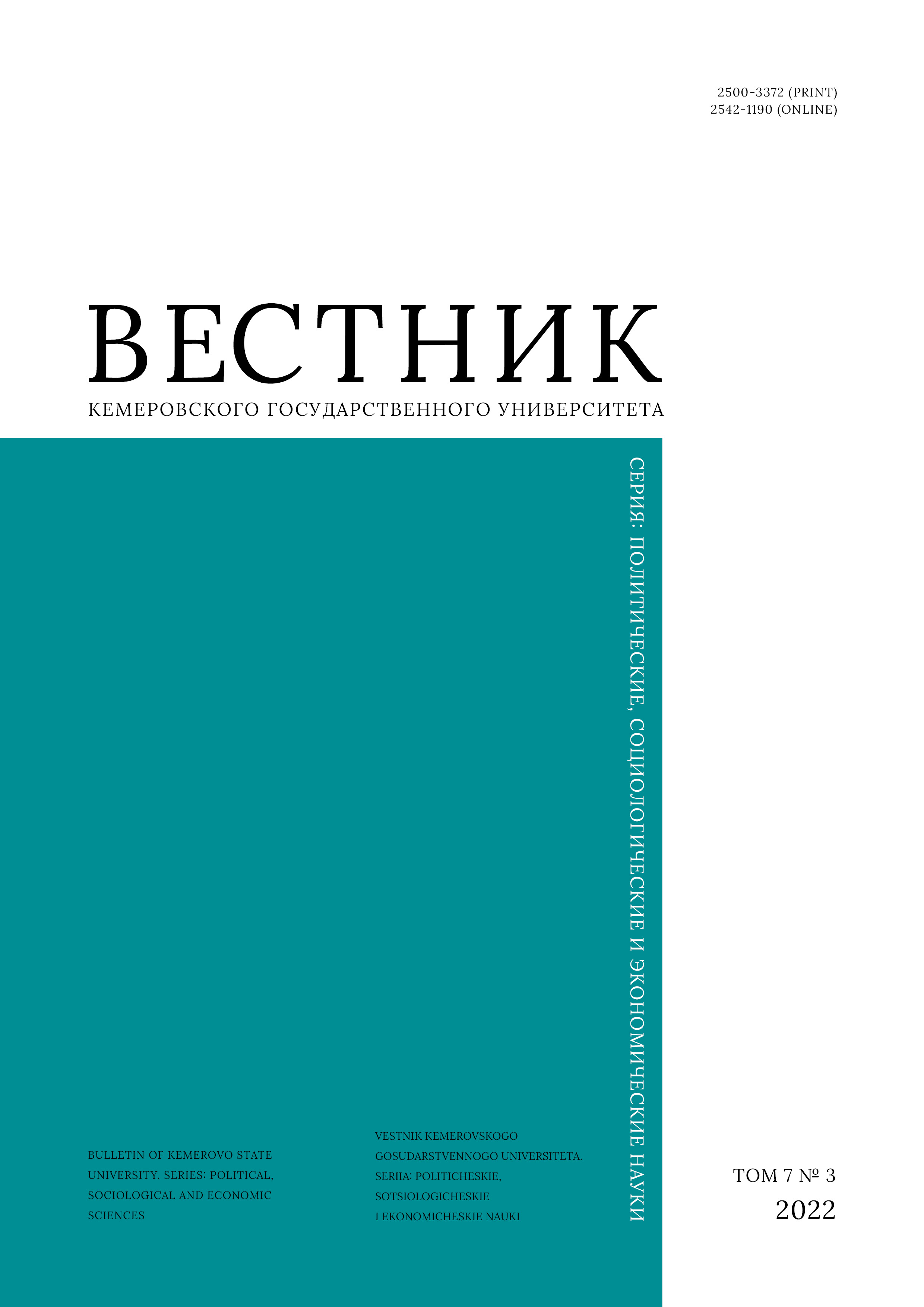employee from 01.01.2021 until now
Makhachkala, Russian Federation
The mechanism of public and private partnership has developed in Western countries as a result of socially significant investment projects. It represents a new, liberal stage of state regulation of the economy. This investment mechanism is also possible in Russia, especially in those areas where private investment provides a sustainable vector for the equilibrium growth of the economic system, leaving control functions to the state. Russian regions require various tools to assess their economic potential, socio-economic development, financial balance, and competitive conditions in the domestic and world markets. Such tools ensure an active federal policy and the economic integrity of the country. The authors explored foreign and domestic experience of privatization and concessions as promising forms of interaction between the state and the business. The research employed such standard methods as synthesis, comparison, statistical analysis, systemic and graphical analysis, etc. The article describes the system of public and private partnership in the sphere of social and industrial infrastructure facilities with their fundamental differences, contact points, advantages, and disadvantages. The review showed that concession is the most popular and attractive form of relationship between the state and business in modern conditions, both abroad and in Russia.
privatization, concession, infrastructure projects, comparative analysis, interaction between the state and business, application practice
1. Medzidov Z. U. Influence of coronavirus infection on the global economy: social and economic consequences. Science Vector of Togliatti State University. Series: Economics and Management, 2021, (1): 42-50. (In Russ.) https://doi.org/10.18323/2221-5689-2021-1-42-50
2. Zeldner A. G. Legal framework in the system of management of partnership relations between the state and business. Economic and Law Issues, 2019, (128): 57-60. (In Russ.) https://doi.org/10.14451/2.128.57
3. Marcelin I., Mathur I. Privatization, financial development, property rights and growth. Journal of Banking & Finance, 2015, 50: 528-546. https://doi.org/10.1016/j.jbankfin.2014.03.034
4. Radić M., Ravasi D., Munir K. Privatization: implications of a shift from state to private ownership. Journal of Management, 2021, 47(6): 1596-1629. https://doi.org/10.1177/0149206320988356
5. Desalegn G., Fekete-Farkas M., Tangl A. The effect of monetary policy and private investment on green finance: evidence from Hungary. Journal of Risk and Financial Management, 2022, 15(3). (In Russ.) https://doi.org/10.3390/jrfm15030117
6. Slay B. The perils of privatizing state property: the polish case. Capitalist Goals, Socialist Past, ed. by Patterson P. L. NY: Routledge, 1993, 193-214. https://doi.org/10.4324/9780429046513-9
7. Mochalnikov V. N. State-private partnership in strategy of social and economic development of Russia. Vestnik Instituta Ekonomiki Rossiyskoy akademii nauk, 2010, (1): 55-76. (In Russ.)
8. Zeldner A. G. Public investments and development of partnerships in the post-crisis period. Economic sciences, 2021, (197): 100-106. (In Russ.) https://doi.org/10.14451/1.197.100
9. Zeldner A. G., Osipov V. S. Concessions as a driver of managing the process of attracting private investment into infrastructure projects. Management theory and practice, 2019, (8): 65-73. (In Russ.)
10. Bukhvald E. M. The legal framework of public-private partnerships in the context of implementation of national projects in the Russian Federation. Ekonomika, predprinimatelstvo i pravo, 2020, 10(3): 503-516. (In Russ.) https://doi.org/10.18334/epp.10.3.100564
11. Ma L., Li J., Jin R., Ke Y. A holistic review of public-private partnership literature published between 2008 and 2018. Advances in Civil Engineering, 2019, (8): 1-18. https://doi.org/10.1155/2019/7094653
12. Costa Á., Cruz C. O., Sarmento J., Faria e Sousa V. Impact of alternative concession models on the economic efficiency of road concessions. Case Studies on Transport Policy, 2022, 10(2): 1026-1033. https://doi.org/10.1016/j.cstp.2022.03.016
13. Ebekozien A., Samsurijan M. S. Concession of public infrastructure: pitfalls and solutions from construction consultants perspective. Asian Journal of Civil Engineering, 2022, 23(5): 753-764. https://doi.org/10.1007/s42107-022-00455-7
14. Gavrilin E. V. The privatization of the state sector of the economy in developed and developins economies. Effektivnoe antikrizisnoe upravlenie, 2014, (1): 48-53. (In Russ.)
15. Glinkina S. P. Privatization: concepts, implementation, and efficiency. Moscow: Nauka, 2006, 235. (In Russ.)
16. Helm D. Thirty years after water privatisation - is the English model the envy of the world? Oxford Review of Economic Policy, 2020, 36(1): 69-85. https://doi.org/10.1093/oxrep/grz031
17. Lelévrier C. Privatization of large housing estates in France: towards spatial and residential fragmentation. Journal of Housing and the Built Environment, 2021. https://doi.org/10.1007/s10901-021-09851-y
18. Whiteside H. Privatizing Canadian government land and real estate: railroads, reconciliation, and rip-offs. Land Use Policy, 2020, 99. https://doi.org/10.1016/j.landusepol.2020.104821
19. Carolino K., Vieira R. S., Sorrentino M. Land dilemmas in Brazil: the history of land privatization in Brazil. Revista Eletrônica Direito E Política, 16(2): 437-462. https://doi.org/10.14210/rdp.v16n2.p437-462
20. Huang Z., Li L., Ma G., Qian J. The reversal of privatization in China: a political economy perspective. IO: Productivity, 2015. https://doi.org/10.2139/ssrn.2350053
21. Nafikova G. A. Concept and social and economic value of privatization of the state and municipal property. News of scientific achievements, 2019, (5): 6-10. (In Russ.)
22. Smirnova I. V. Privatization: non-new principles. Simvol nauki: mezhdunarodnyi nauchnyi zhurnal, 2016, (4-1): 212-216. (In Russ.)
23. Pashkovskiy P. V. Public-private partnership and privatization: correlation problems. Simvol nauki: mezhdunarodnyi nauchnyi zhurnal, 2015, (11-1): 230-232. (In Russ.)
24. Government relations. Interaction between business and authorities, ed. by Markovskaia E. I. 2nd ed. Moscow: Urait, 2020, 368. (In Russ.)
25. Zhao Z. J., Su G., Li D. The rise of public-private partnerships in China. Journal of Chinese Governance, 3(2): 158-176. https://doi.org/10.1080/23812346.2018.1457297
26. Gabayet N. Public-private partnerships and concessions in France. Public-Private Partnerships and Concessions in the EU, eds Bogdanowicz P., Caranta R., Telles P. Cheltenham: Edward Elgar Publishing, 2020, 52-70.
27. Varnavskii V. G., Klimenko A. V., Korolev V. A., Bazhenov A. V., Vorotnikov A. M. Public and private partnership: theory and practice. Moscow: HSE, 2010, 287. (In Russ.)
28. Rastegaeva F. S., Shashkova T. N., Shalina O. I., Tokareva G. F. Change in the role of budgetary and fiscal policy in a global economic recession. Rossiyskoe predprinimatelstvo, 2017, 18(6): 1049-1058. (In Russ.) https://doi.org/10.18334/rp.18.6.37609


















